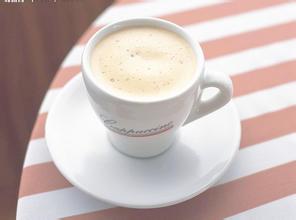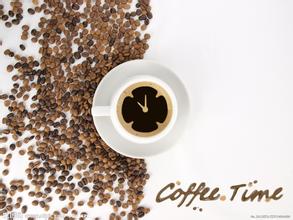Introduction of Indonesian Kopi Luwak flavor and taste civet coffee from Indonesian coffee producing area
In Indonesian, "Kopi" means coffee, and "Luwak" is the name commonly known by Indonesians as "civet". It is said that the coffee produces no more than 500 pounds a year, and the price per pound ranges from $300 to $800, depending on the year, because there is not a fixed production every year.
In the international market, Luwak coffee has always been a veritable luxury, and one of the main reasons is that it is not made by people but by wild animals. Traditionally, the coffee fruit is washed or sun-treated, removing the skin, pulp and sheep skin, and finally taking out the coffee beans, but Luwak coffee is made by natural fermentation in wild animals. What's more, these wild animals are found only on small islands like Indonesia, and their time and place are mysterious, and their number is decreasing day by day. Although Indonesia has claimed that the number of "civets" has rebounded steadily through protection and artificial feeding, the temptation of human taste buds, which depends on its digestive system, cannot be compared with products of the industrial era.
"civets" are omnivores. They are withdrawn by nature and like to walk at night. They live in tropical rain forests, subtropical evergreen broad-leaved forests, mountain thickets or hills, mountains and grasses below 2000 meters above sea level. Its food includes small beasts, birds, amphibians and reptiles, crustaceans, fruits and seeds of insects and plants. The civet likes to choose the most mature, sweet, juicy coffee fruit in the coffee tree as food, while the coffee fruit passes through its digestive system and is digested only by the pulp on the outside of the fruit. The hard coffee beans are then excreted intact by the civets' digestive system. This is the "natural fermentation method" that was once scoffed by Americans. It is said that when Americans heard about this way of making coffee, it was regarded as a fantasy, and it was not until it was reported by National Geographic that they became interested in it.
The world's most luxurious coffee, the world's most expensive coffee, the world's rarest coffee.
There are always people who describe Kopi Luwak in this way, which sounds like a boring anecdote
I can't help thinking of Oscar Wilde's words.
People always pay too much attention to the price of things, but often ignore their own value. Forget the rumors of clumsy and useless embellishments
Let's start a magical journey to Kopi Luwak. -- Caffeine.
Unique flavor
Cat poop is processed into the world's most expensive coffee.
Cat poop is processed into the world's most expensive coffee.
Indonesian coffee has the taste of earth and traditional Chinese medicine, and its consistency is among the highest in all continents. But "Kopi Luwak" has a heavier earthy smell, and its consistency is closer to that of syrup. It has a very special flavor. After drinking, there will still be a touch of peppermint cool feeling in the mouth, which is the "exclusive taste" that ordinary coffee does not have. After drinking a cup, take a deep breath or take a sip of cold water, you can obviously feel cool from mouth to throat. It's like I just ate a mint lotion.
Experts say there is a gland near the sexual organs of the Indonesian "civet" that secretes milky oil, which has always been a precious raw material for the perfume industry. Even Shakespeare's play King Lear has this dialogue: "Please give me some civet oil to stimulate my inspiration." Others said, "this coffee is unique and is a specialty of Indonesia." Drink it, it's like finding a diamond in a stone. " Because the wild "civets" are obviously better at selecting good coffee fruits, which makes this kind of coffee have outstanding characteristics.

Important Notice :
前街咖啡 FrontStreet Coffee has moved to new addredd:
FrontStreet Coffee Address: 315,Donghua East Road,GuangZhou
Tel:020 38364473
- Prev

Smooth taste Peruvian coffee flavor Introduction Peruvian organic coffee boutique coffee beans
Peru's coffee cultivation is planned, which greatly increases coffee production. Its rich acidity and mellow smoothness are its most striking features. Peruvian coffee has a mild acidity, medium texture, good taste and aroma, and is an indispensable ingredient in making mixed coffee. Excellent Peruvian coffee with a rich aroma, smooth, structured and rich taste
- Next

Cuban Crystal Coffee Flavor introduction Cuban Coffee characteristics Fine Coffee beans
Crystal Mountain Coffee is the top representative of Cuban coffee, while Cubita is the top representative of Crystal Mountain Coffee. Cubita Amber is the coffee for the celebration of the 50th anniversary of the establishment of diplomatic relations between China and Cuba, and the coffee for the Shanghai World Expo-Cuba Pavilion. Noble women and elegant men are always infatuated. The same is true of Cubita. If you take a shallow taste, you will be deeply affected by its taste.
Related
- Detailed explanation of Jadeite planting Land in Panamanian Jadeite Manor introduction to the grading system of Jadeite competitive bidding, Red bid, Green bid and Rose Summer
- Story of Coffee planting in Brenka region of Costa Rica Stonehenge Manor anaerobic heavy honey treatment of flavor mouth
- What's on the barrel of Blue Mountain Coffee beans?
- Can American coffee also pull flowers? How to use hot American style to pull out a good-looking pattern?
- Can you make a cold extract with coffee beans? What is the right proportion for cold-extracted coffee formula?
- Indonesian PWN Gold Mandrine Coffee Origin Features Flavor How to Chong? Mandolin coffee is American.
- A brief introduction to the flavor characteristics of Brazilian yellow bourbon coffee beans
- What is the effect of different water quality on the flavor of cold-extracted coffee? What kind of water is best for brewing coffee?
- Why do you think of Rose Summer whenever you mention Panamanian coffee?
- Introduction to the characteristics of authentic blue mountain coffee bean producing areas? What is the CIB Coffee Authority in Jamaica?

